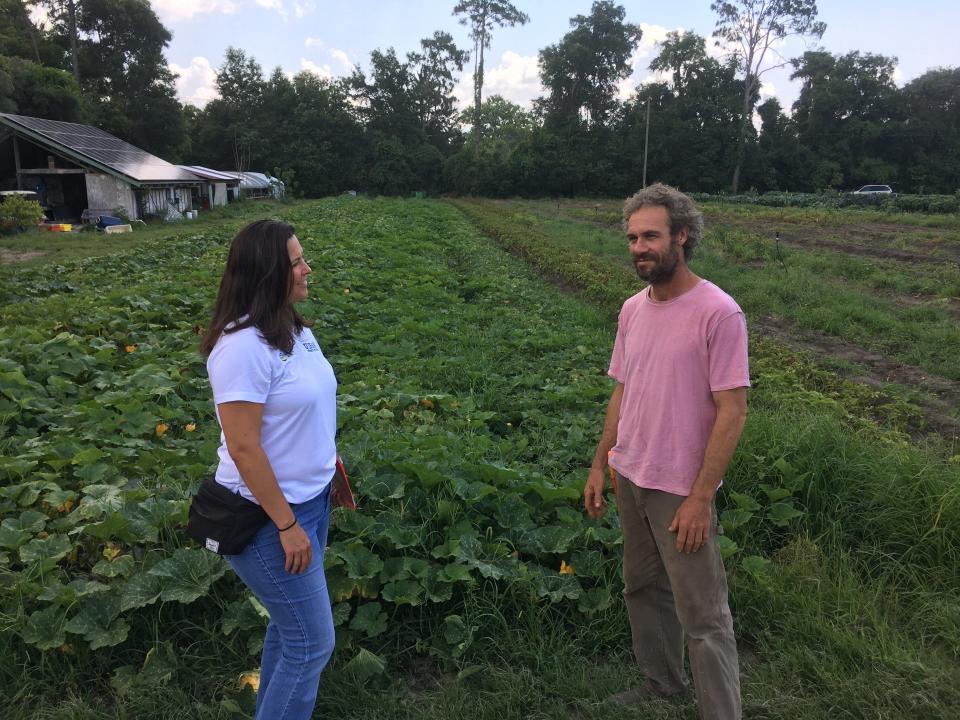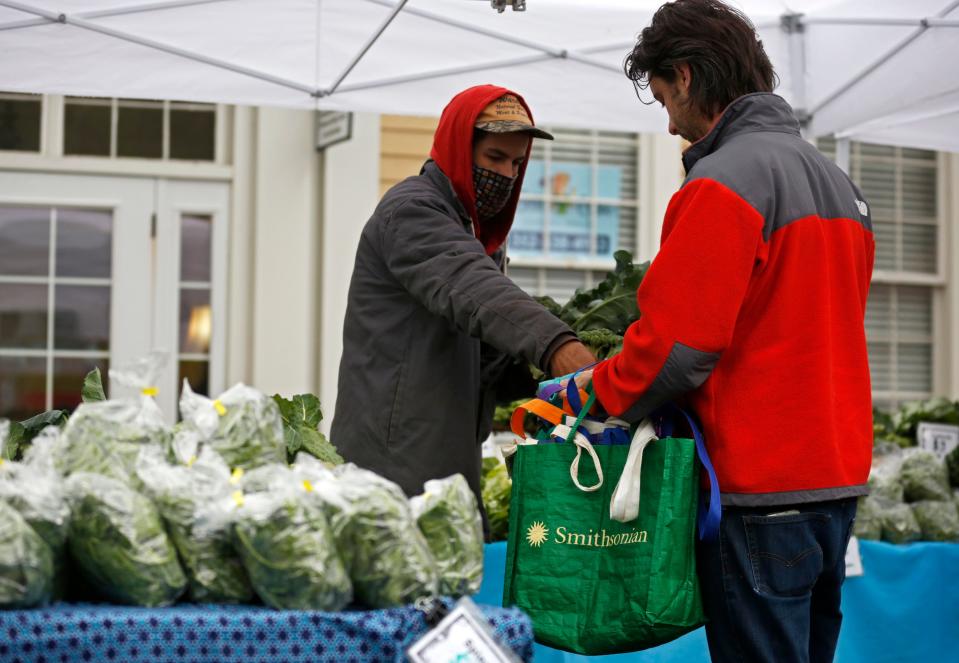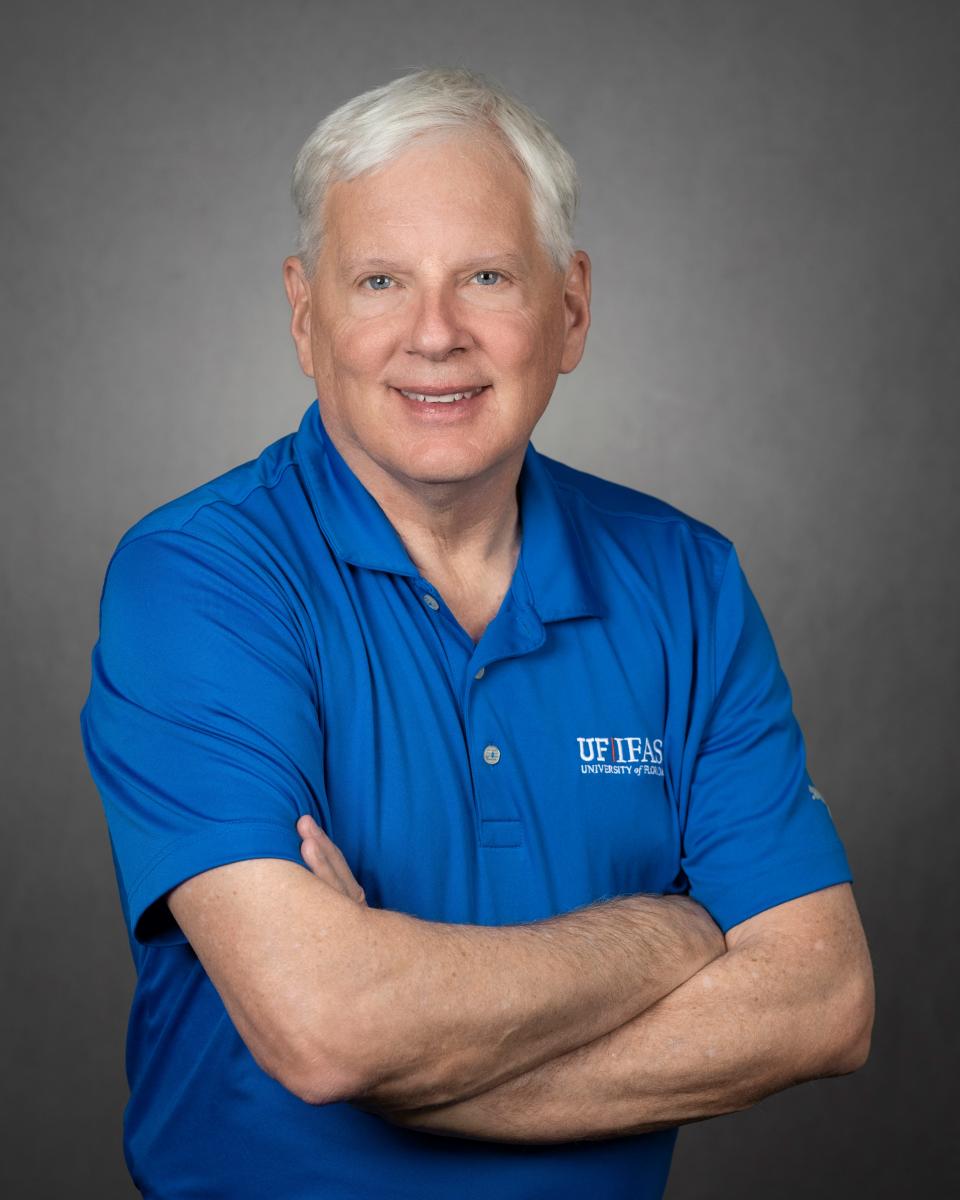UF/IFAS studying potential of small, urban farms to supplement local food supply
Growing food in Gainesville and other cities can make them better places.
Small farms in warehouses, in garden boxes on small lots or in hydroponic greenhouses can put healthy food in neighborhoods not served by supermarkets, green the area and support businesses and jobs.
Most of your food is — and will continue to be — produced on much larger rural acreage. The efficiencies of farming by the hundreds or thousands of acres have given Floridians remarkably affordable, abundant and safe choices in our grocery stores.
Some farmers are fifth-, sixth- and seventh-generation families with a legacy of expertise in food production and a vested interest in stewarding the land so an eighth generation can continue feeding Florida.
More from Scott Angle:
UF/IFAS uses high-tech methods to improve farming practices affecting springs
At UF/IFAS, we like to say that food is our middle name
Taking the cake: UF/IFAS food scientists create baked good with health benefits
City-grown food could supplement traditional rural large-acreage ag. We need the know-how, the public policy and the access to capital that supports it.
The research starts with basic questions. How many urban farms do we have? What are they producing? Do they make money?
The expansion of the United States Department of Agriculture farming census to include small and urban farms is a good start. So is the University of Florida’s Institute of Food and Agricultural Sciences support of Dr. Catherine Campbell from a special fund dedicated to what we call agricultural “emerging enterprises.”
Campbell is investigating how many urban farms we have and their potential to contribute in a larger way to our food supply, the same way other UF/IFAS faculty members are investigating whether Florida could be a much larger producer of vanilla, goat milk or pomegranates.
Campbell, of the UF/IFAS Family, Youth and Community Sciences Department, is trying to get at what it would take for more places like Siembra Farm to succeed. Cody Galligan farms 10 hidden acres of ginger, peppers, eggplant, corn and much more in southeast Gainesville.

Galligan is good at producing food. But selling it is challenging for small-scale growers who rely on local farmers’ markets and community-supported agriculture subscriptions.
He’s competing for consumers who enjoy convenience and choice in the supermarket. Galligan’s subscribers get what’s in season that week. He’s also competing against meal kit subscribers who pay a premium to have just the ingredients they need delivered to their door and the instructions for how to convert them into dinner in 20 minutes.
Campbell sees potential in a cross between the CSA and meal kit models. If done right, it could be a system for consumers to support local farmers, decrease their food’s carbon miles and minimize packaging while enjoying the convenience of Blue Apron.
Campbell says it’s worth pursuing because consumers say they want these things. Many also want to encourage organic farming like Galligan practices, or to express their values by spending their money at Siembra because Galligan hires and shares leadership with women and wants to provide more healthy food to an underserved neighborhood.

Many agricultural scientists will tell you having lots more organic farms can’t feed the world. It would be challenging, if not impossible, for example, to affordably and sustainably produce enough organic fertilizer to achieve the doubling of food production worldwide by 2050 to meet projected population needs. But Galligan suggests we feed the world at least partly this way for the sake of environmental, social justice and public health benefits, and there is a significant number of consumers who agree.
Campbell’s work as a social scientist in the food systems space revolves around designing ways to connect farmers and consumers more directly. She seeks to understand what products at what price and under what conditions consumers prefer. At the same time, she wants to help farmers like Galligan market to these consumers.
For Galligan, it’s almost a second job to find CSA subscribers, farmers’ market customers and the odd side deal with a restaurant or school to earn a livelihood from his day job in the field.
Campbell’s work advances our understanding of agriculture as a system, and systems are complicated to tinker with and improve. But we’ve seen what plant disease, pandemics and, lately, war on the other side of the world does to these systems if we do nothing.

Food systems work like Campbell’s and farming like Galligan’s could restore some of the fraying connection between field and fork in a way that helps all of agriculture.
J. Scott Angle is UF’s senior vice president for agriculture and natural resources and leader of UF/IFAS.
Join the conversation
Share your opinion by sending a letter to the editor (up to 200 words) to letters@gainesville.com. Letters must include the writer's full name and city of residence. Additional guidelines for submitting letters and longer guest columns can be found at bit.ly/sunopinionguidelines.
Journalism matters. Your support matters.
Get a digital subscription to the Gainesville Sun. Includes must-see content on Gainesville.com and Gatorsports.com, breaking news and updates on all your devices, and access to the eEdition. Visit www.gainesville.com/subscribenow to sign up.
This article originally appeared on The Gainesville Sun: J. Scott Angle: UF/IFAS studying potential of small and urban farms

